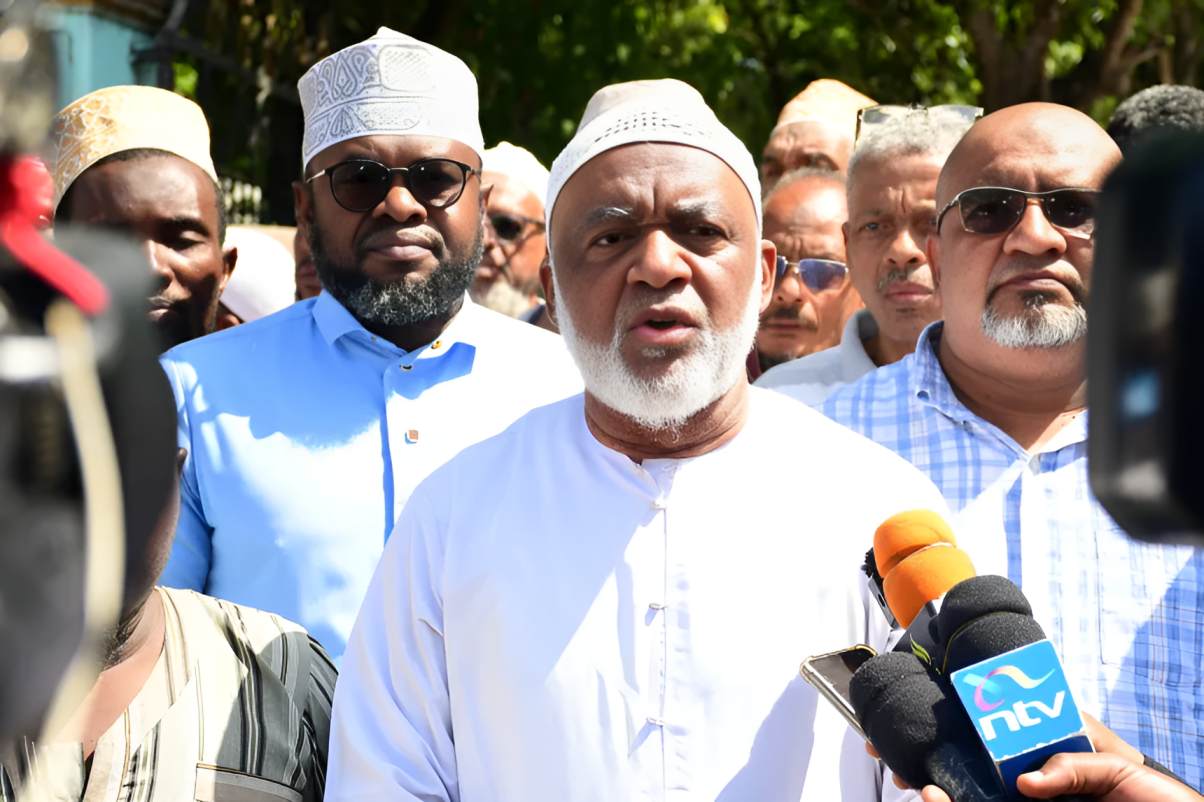A group of Muslim religious leaders from Kenya’s Coastal region have expressed firm opposition to a recent Supreme Court judgment allowing children born out of wedlock to inherit property from their deceased Muslim fathers.
The clerics have labelled the ruling a violation of Islamic principles and an encroachment on the constitutionally established jurisdiction of Kadhi courts.
Addressing the media in Mombasa, the leaders argued that the decision undermines religious freedoms guaranteed in the Constitution and contradicts Islamic teachings on inheritance.
They urged the government and legal institutions to act swiftly in safeguarding the integrity of Islamic Personal Law, particularly on matters relating to family and succession, which are customarily handled by the Kadhi courts.
Sheikh Abu Qatada, Chairperson of the Pwani Patriotic Religious Leaders, criticized the verdict, asserting that it bypasses the authority of the Kadhi courts, which are tasked with settling personal legal matters among Muslims.
"We are deeply concerned by this Supreme Court decision, which places children born outside marriage on equal footing with those born within wedlock in matters of inheritance,” said Sheikh Qatada.
“Kenya upholds religious freedom, and issues like these should fall under the purview of the Chief Kadhi, whose guidance is rooted in the Qur'an rather than civil law."
The contested ruling, delivered on June 30, 2025, was made in the case of Fatuma Athman Abud Faraj vs Ruth Faith Mwawasi & Others (SC Petition No. E035 of 2023).
In its decision, the Supreme Court dismissed an appeal that sought to bar children born out of wedlock from inheriting under Islamic law, declaring such exclusion discriminatory and unconstitutional under Articles 27 and 53.
While acknowledging that Article 24(4) of the Constitution permits the application of Muslim law in personal matters, the Court noted that it does not exempt Muslims from the broader principles of equality enshrined in Article 27.
The judges held that inheritance rights cannot be denied on the basis of a child’s birth status, calling such practices unjust and contrary to the best interests of the child.
However, Muslim clerics have argued that the ruling erodes the constitutional authority of Kadhi courts, which under Article 170 are mandated to preside over cases concerning marriage, divorce, and inheritance among Muslims.
Abu Muhsin, a Muslim faithful, questioned the legitimacy of the Supreme Court’s intervention in religious matters. “Why should the Supreme Court override decisions that fall within the Chief Kadhi’s jurisdiction? This undermines our religious laws,” he stated.
The clerics, backed by community members, called for action from the Attorney General, the Chief Kadhi, and the Law Society of Kenya to challenge the ruling.
They also demanded legislative intervention from Muslim lawmakers to reinforce the jurisdiction of Kadhi courts and prevent secular encroachment into religious affairs.
“We have begun collecting signatures from Muslims across the country to petition Parliament and the Senate to reverse this ruling and uphold our constitutional rights,” said Muhsin.
While emphasizing their respect for the judiciary, the leaders stressed the need for courts to acknowledge and preserve the role of religious legal systems that guide the lives of many Kenyan Muslims.
“We must ensure that our faith-based legal structures are not dismantled by rulings that disregard their significance in our community,” added Muhsin.
Following the conclusion of the appeal, the Supreme Court referred the matter back to the High Court in Mombasa, directing a different judge to determine the specific inheritance entitlements involved in the case.
